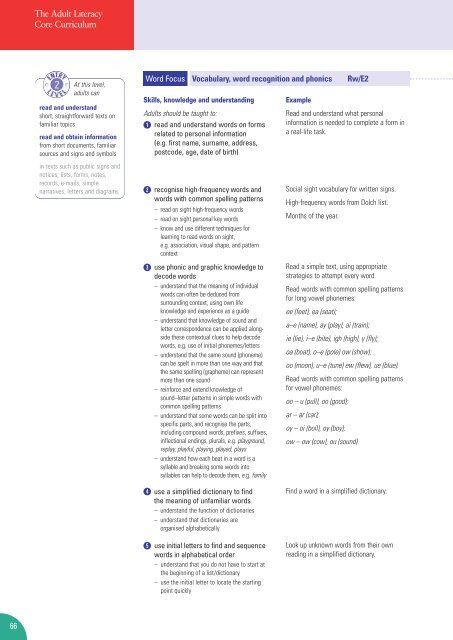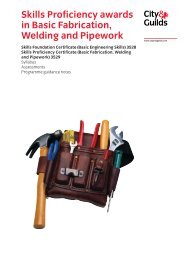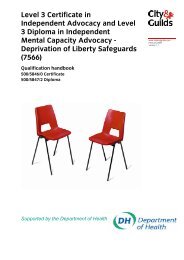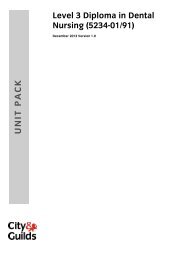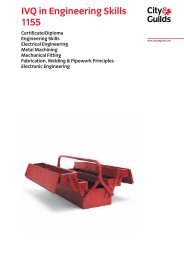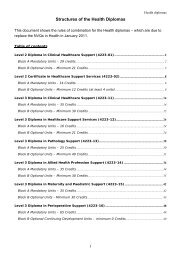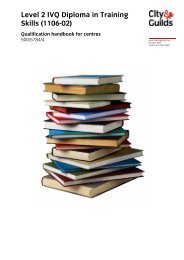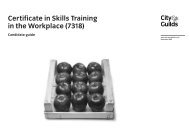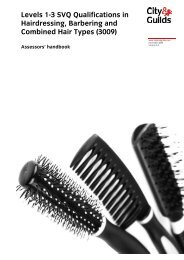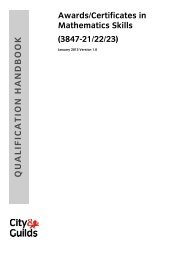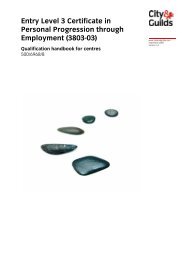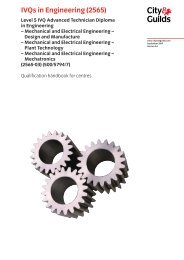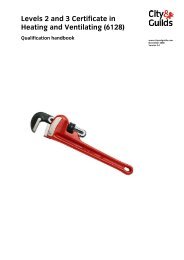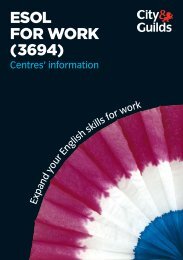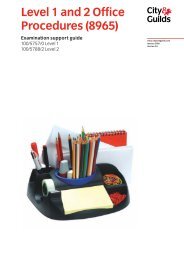Adult Literacy Core Curriculum - Nationally developed Skills for Life ...
Adult Literacy Core Curriculum - Nationally developed Skills for Life ...
Adult Literacy Core Curriculum - Nationally developed Skills for Life ...
Create successful ePaper yourself
Turn your PDF publications into a flip-book with our unique Google optimized e-Paper software.
66<br />
The <strong>Adult</strong> <strong>Literacy</strong><br />
<strong>Core</strong> <strong>Curriculum</strong><br />
At this level,<br />
adults can<br />
read and understand<br />
short, straight<strong>for</strong>ward texts on<br />
familiar topics<br />
read and obtain in<strong>for</strong>mation<br />
from short documents, familiar<br />
sources and signs and symbols<br />
in texts such as public signs and<br />
notices, lists, <strong>for</strong>ms, notes,<br />
records, e-mails, simple<br />
narratives, letters and diagrams<br />
Word Focus Vocabulary, word recognition and phonics Rw/E2<br />
<strong>Skills</strong>, knowledge and understanding<br />
<strong>Adult</strong>s should be taught to:<br />
1 read and understand words on <strong>for</strong>ms<br />
related to personal in<strong>for</strong>mation<br />
(e.g. first name, surname, address,<br />
postcode, age, date of birth)<br />
2<br />
3<br />
4<br />
5<br />
recognise high-frequency words and<br />
words with common spelling patterns<br />
– read on sight high-frequency words<br />
– read on sight personal key words<br />
– know and use different techniques <strong>for</strong><br />
learning to read words on sight,<br />
e.g. association, visual shape, and pattern<br />
context<br />
use phonic and graphic knowledge to<br />
decode words<br />
– understand that the meaning of individual<br />
words can often be deduced from<br />
surrounding context, using own life<br />
knowledge and experience as a guide<br />
– understand that knowledge of sound and<br />
letter correspondence can be applied alongside<br />
these contextual clues to help decode<br />
words, e.g. use of initial phonemes/letters<br />
– understand that the same sound (phoneme)<br />
can be spelt in more than one way and that<br />
the same spelling (grapheme) can represent<br />
more than one sound<br />
– rein<strong>for</strong>ce and extend knowledge of<br />
sound–letter patterns in simple words with<br />
common spelling patterns<br />
– understand that some words can be split into<br />
specific parts, and recognise the parts,<br />
including compound words, prefixes, suffixes,<br />
inflectional endings, plurals, e.g. playground,<br />
replay, playful, playing, played, plays<br />
– understand how each beat in a word is a<br />
syllable and breaking some words into<br />
syllables can help to decode them, e.g. family<br />
use a simplified dictionary to find<br />
the meaning of unfamiliar words<br />
– understand the function of dictionaries<br />
– understand that dictionaries are<br />
organised alphabetically<br />
use initial letters to find and sequence<br />
words in alphabetical order<br />
– understand that you do not have to start at<br />
the beginning of a list/dictionary<br />
– use the initial letter to locate the starting<br />
point quickly<br />
Example<br />
Read and understand what personal<br />
in<strong>for</strong>mation is needed to complete a <strong>for</strong>m in<br />
a real-life task.<br />
Social sight vocabulary <strong>for</strong> written signs.<br />
High-frequency words from Dolch list.<br />
Months of the year.<br />
Read a simple text, using appropriate<br />
strategies to attempt every word.<br />
Read words with common spelling patterns<br />
<strong>for</strong> long vowel phonemes:<br />
ee (feet), ea (seat);<br />
a–e (name), ay (play), ai (train);<br />
ie (lie), i–e (bite), igh (high), y (fly);<br />
oa (boat), o–e (pole) ow (show);<br />
oo (moon), u–e (tune) ew (flew), ue (blue).<br />
Read words with common spelling patterns<br />
<strong>for</strong> vowel phonemes:<br />
oo – u (pull), oo (good);<br />
ar – ar (car);<br />
oy – oi (boil), oy (boy);<br />
ow – ow (cow), ou (sound).<br />
Find a word in a simplified dictionary.<br />
Look up unknown words from their own<br />
reading in a simplified dictionary.


